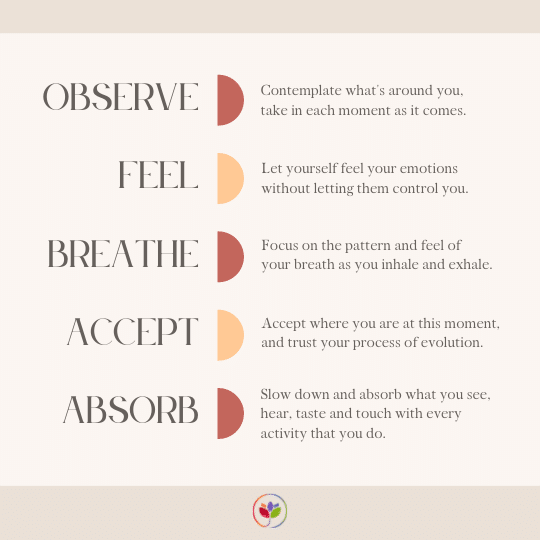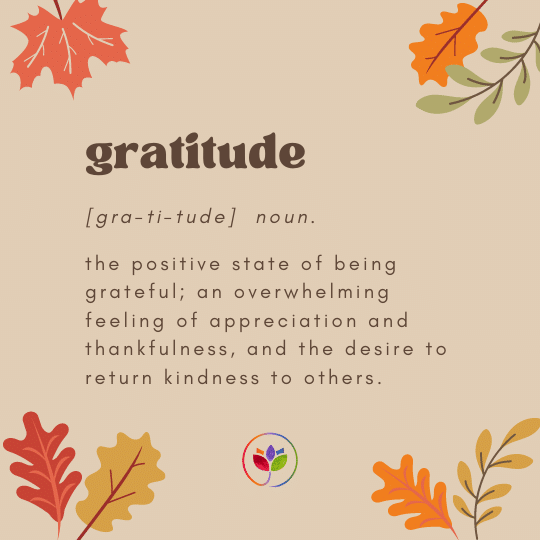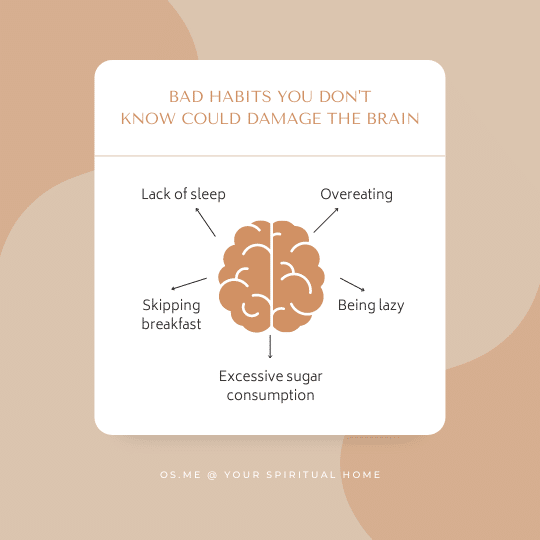“Is it a sin to have impure thoughts? How can I get rid of such thoughts?” someone wrote to me the other day. Before, I answer this question, allow me to share with you that I don’t believe in the notion of sin. There’s nothing called sin. I’m not suggesting that everything we do or think is right, but sin means you have done something that has led to an estrangement from God, because of which God is now upset with you. I don’t think God would be God if He got upset. God’s love is unconditional. Sin is a religious concept whereas your true nature, and God too, is beyond any religion, book, or belief system.
If there’s no sin, does that mean, everything is acceptable? Not quite. Nature operates on a self-fulfilling prophecy. You plant an apple seed and it’ll sprout and grow into an apple tree. Nature is not punishing you or rewarding you for this karma. To judge as good or bad, right or wrong is a human way. The divine way is to simply be aware, to be a witness. There is no sin in having impure thoughts, but acting on impure thoughts can amount to undesirable actions. And, this leads me to our topic today: how to rise above your impure thoughts
If anyone ever tells you that they can offer you a practice, or a way to not have impure thoughts in your mind, they are lying. No power in this world or any other can give you that guarantee. An average human mind goes through 60,000 thoughts in 24 hours, and, it is but natural that some of those thoughts are going to be undesirable. To have an impure thought doesn’t make you impure, it doesn’t make you a bad person. It’s not the thought itself that matters, it’s what you do with it.
Everyone experiences thoughts of hatred, jealousy and impropriety. There’s nothing destructive about them, because thought can come from any direction, at any time. One could be thinking about philandering or deceit while praying in a temple and the same person could be thinking of compassion and morality in a brothel. It’s possible. Thoughts are involuntary, they come uninvited. There’s nothing unusual about having impure thoughts. It’s not the thought itself but its pursuit that ultimately impacts your emotional and mental state.
Therefore, it’s not realistic to expect that you never have any impure thoughts but it’s quite doable to not pursue such thoughts nor act on them. When you get a thought you deem impure, simply shift your attention. Focus your mind elsewhere. Don’t go after the thought. Let’s say you are thanking God for everything you have in your life including a wonderful family. And, out of nowhere, the thought of a woman surfaces in your consciousness. At that moment, don’t chase the thought or feel bad that you thought what you did. Just gently bring your attention back to the present moment, the woman will go away.
If, however, you start to follow the thought-trail and begin contemplating on her, her body, or being with her, the thought will rapidly gather momentum soon overpowering your ability to think straight. A tiny, harmless flake of snow will turn into a juggernaut as it rolls down. It may nudge you to translate your thought into an action you may regret later on.
A disciple fell in love with her master. She felt guilty for feeling those emotions, but guilt could not help her emerge stronger than her ardor. With her heart ruling over her mind, she could contain it no longer.
“I’m sorry, master,” she said, “but, I have tremendous feelings for you.”
“Don’t be sorry,” said the master. “If you have tremendous feelings for me, I have enough discipline for both of us.”
Think of yourself as the master and your thoughts as the disciple. When they come to you, no one has to be sorry, you just have to be aware and choose a course of action accordingly. Give your thoughts the freedom to approach you, while you keep the strength to direct them. If you repeatedly get the same impure thought, then, we need to get to the bottom of it. It could be because of deprivation. Those who are fulfilled in their lives are a lot less likely to experience constant jealousy or hatred than those who never experienced true love.
If someone’s fasting, it’s quite natural that they’ll get thoughts of food more than any other. So long as they are busy, they may not feel hungry but, the moment they’re free, the thought of food will emerge strongly. Similarly, when you give your mind a free moment, most probably, you’ll have an impure thought, a negative thought, or a depressing thought. It’s natural. Why? Because, most people are constantly battling with themselves to not think impurely, to not be negative, to not be jealous, and so forth. You are fasting and you are trying to eliminate the thought of food from your mind.
Mindfulness is the key. Accept, don’t react, don’t pursue, don’t feel guilty. Just let it be. You can build mindfulness with meditation, with contemplation, with determination. You never have to be sorry for your feelings or your thoughts. They are not pure or impure, they just are. You just have to watch what you do with them.
When you simply draw yourself back to the present moment, all thoughts, both good and bad, vanish. There’s no battle then. There’s nothing to escape in the present moment. This is the simple truth.
Peace.
Swami
Editorial Note
How to remove ‘bad thoughts’ from the mind? How to overcome ‘impure thoughts’? How to get rid of ‘bad thoughts’ in your head? Hopefully, you have got answers to all such questions after reading the post above. Mindfulness is key to a light head.
Following FAQs and mindfulness practices will help overcome ‘impure thoughts’ that plague the mind:
How to get rid of bad thoughts by practicing meditation?
One of the most rewarding outcomes of great meditation is the complete cessation of thoughts. It’s an extraordinary feeling; I’ve no words to describe what it’s like to stay in that state for hours and hours. If you are serious about meditation, then following Tilopa’s six words of advice will help you make a giant leap.

Here are the six things a good mediator avoids while meditating:
1. Recollection: Don’t pursue thoughts of the past.
2. Calculation: Don’t pursue thoughts of the present.
3. Imagination: Don’t imagine what may happen in the future.
4. Examination: Don’t analyze your thoughts.
5. Construction: Don’t try to create an experience.
6. Digression: Don’t wander; simply stay in the present moment. Read more here.
Practicing meditation can help clear the head of ‘bad thoughts’. Here are some useful resources to get you started on your meditation journey:
The First Step in Meditation – In my conversations with scores of people, many have asked about the starting point and feasibility of self-realization for householders. Read more here.
Two Types of Meditation – Primarily there are two types of meditation.
One is called concentrative meditation, also referred to as fixed attentiveness, and the other one is called contemplative meditation, also known as analytical investigation. Read more here.
Million Thoughts – A Book For Meditation
Based on my thousands of hours of strenuous meditation, here’s a text that tells you everything you need to know about meditation. This book shows you how to meditate correctly, various styles of meditation and many yogic practices leading you to the final stage of samadhi. Get your copy here.
The Art of Meditation – Learn meditation in four days (and master it over a lifetime)
In this virtual retreat, you will learn about how to master the art of meditation, perfect your posture in meditation, develop a meditator’s mindset, and overcome various hurdles on the path. Enroll here.
How to get rid of bad thoughts by practicing Zen?
Zen says, just let me be in the present moment, that even breathing is a blessing. If I can’t be happy with what I have now, I can never be happy with whatever I may have in the future. It is all but apparent that every time and under any circumstances, you will have at least one difficult person in your life. You will face at least one big challenge. And you will have to deal with at least one adversity, whether that is mental, physical, emotional, psychical, psychological or spiritual. This is very much a part of life. But in all this, to be able to flow is Zen.
Zen is about living in the present, it is about “Now”. Read more here.
How to get rid of bad thoughts by practicing gratitude?

If you believe that in order to be grateful, you must have certain things in your life, you will always find it hard to be thankful because no matter how much you may have, there will still be just as much more you will want to have.
Work towards what gives you joy, but be grateful for all that you have.
When you are grateful, an invisible blanket of peace covers you; it makes you glow, makes you happy, makes you strong, makes you warm.
On the path of emotional transformation, the first and foremost emotion is gratitude. To be grateful. Like all other habits, this can be learned, practiced, cultivated, nurtured. Read more here.
Go here – To learn all about the actual practice of gratitude.
How to get rid of bad thoughts by increasing your brainpower?

Each one of us has only one brain (or less…) and it can only do so much. If it has to constantly cover lies or defend its position, if this powerful little organ has to battle inner demons, it is left with no time or energy to focus on the big picture. You lose your brain power. For your brain to be your ally or the agency of self-transformation, to have real brain power, it must be free from the petty shackles of undesirable thoughts and actions. And, living a virtuous life alone can give someone that freedom.
To cut a long story short, it would help to see the brain as a type of power, a force (and not just an organ). This power is harnessed and multiplied by shedding self-limiting beliefs, building self-discipline and leading a righteous life. Read more here.
How to get rid of bad thoughts by applying the “Just Right” formula?
The strange thing is that the definition of what is “just right” varies from one person to another. What is just right for a 17-year-old is generally not what’s right for a 70-year-old. Hence, when I say, discover your own truth, I mean that you must find your own right combination. If you truly wish to enjoy life, you ought to strike a balance between your dreams and duties. Sometimes, our whole life slithers by before we realize what is “just right” for us. Your bank card has only one right pin, a combination of four digits that’s just right to operate it. Something that’s close enough is not good enough. It has to be the exact number. For me, it is empathy (samvedana), to put hope in hearts (sahara), to work hard (purashartha), and to lead a meaningful life (sarthakta). That’s what feels right to me. Your combination could be different.
And remember, no one has ever got it “just right” by clinging to their past. The wisdom of life requires that we plod along. The foods we eat or the clothes we wear in spring don’t suit us in winter. Therefore, “Just right” is a journey, not a destination or pursuit. Read more here.
A GOOD STORY
There were four members in a household. Everybody, Somebody, Anybody and Nobody. A bill was overdue. Everybody thought Somebody would do it. Anybody could have done it but Nobody did it.
Don't leave empty-handed, consider contributing.It's a good thing to do today.









Comments & Discussion
24 COMMENTS
Please login to read members' comments and participate in the discussion.